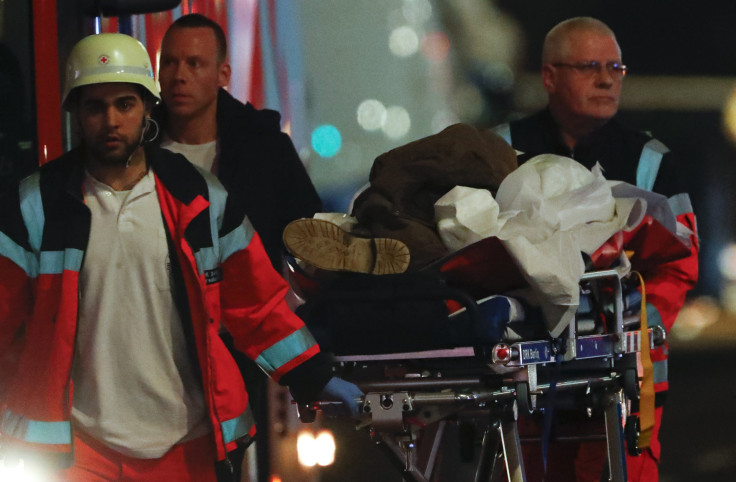German Tourism Economy 2016: After Berlin Terror Attack, Will The City Struggle To Attract Holiday Visitors?

Hot mulled wine was available in abundance to compliment the chilly winter temperatures in Berlin Monday evening as holiday revelers, many of whom may have been tourists from around Europe and the world, strolled through the twinkling Christmas market at the foot of Keiser Wilhelm Memorial Church. At around 8 p.m. local time, though, what was likely a cheerful and festive scene turned to chaos and carnage as a black truck smashed through the scene, killing at least 12 and wounding dozens more in one the most severe terror attack to hit Germany in recent history.
The attack, which the Islamic State group later claimed responsibility for, came in the middle of one of Berlin’s busiest tourism seasons of the year. Tourists flock from all around to enjoy roasted almonds, gingerbread and bratwurst featured at the Christmas markets found across the country. Those attractions themselves make up an estimated over $1 billion yearly. But, just as was seen in the aftermath of recent ISIS terror attacks in France and Belgium, Germany is likely to experience at least a short lull in its tourism industry that could keep people away from the markets until travelers become comfortable again with spending their leisure time in the city.
“What these incidents showed is that tourism is impacted in the short-term, but that countries like France and Germany in the long-term are seen as sufficiently safe as travel destinations,” Wouter Geers, a travel analyst at the market research group Euromonitor, said in a statement emailed to the International Business Times. “Christmas markets are a big attraction for German cities, including Berlin, and this attack will no doubt impact the amount of visitors for the remainder of this year. However, I do not believe that this attack will significantly impact tourism to Germany and Berlin in 2017.”
While tourism levels rebound from the lows seen immediately after large-scale attacks, interest in visiting the European countries most impacted plummeted immediately after the attacks in places like France and Belgium, according to ForwardKeys, a group that analyzes travel booking patterns to help predict the future of tourism. Major destinations across Europe saw a decline over the summer following those attacks, including the United Kingdom (down 1.3 percent), Germany (down 4.1 percent) and France (down 9.6 percent).
Reductions like those mean the loss of billions of euros contributing to local GDP. In Germany, travel and tourism contributed roughly 110 billion euros to the country’s economy in 2015, or just under 3.8 percent of the total economy, according to the World Travel and Tourism Council.
Foreign governments were advising would-be travelers to Germany to “remain vigilant” and to follow the commands of local police forces but stopped short of recommending cancelling travel plans. The United Kingdom’s foreign travel advice website noted that the threat of terrorism is high in Germany and says there is heightened security in public spaces. The United States State Department says that there is “credible information” that terror plots are being plotted and that terrorist attacks are possible in all of Europe but also does not advise cancelling plans.
© Copyright IBTimes 2025. All rights reserved.






















